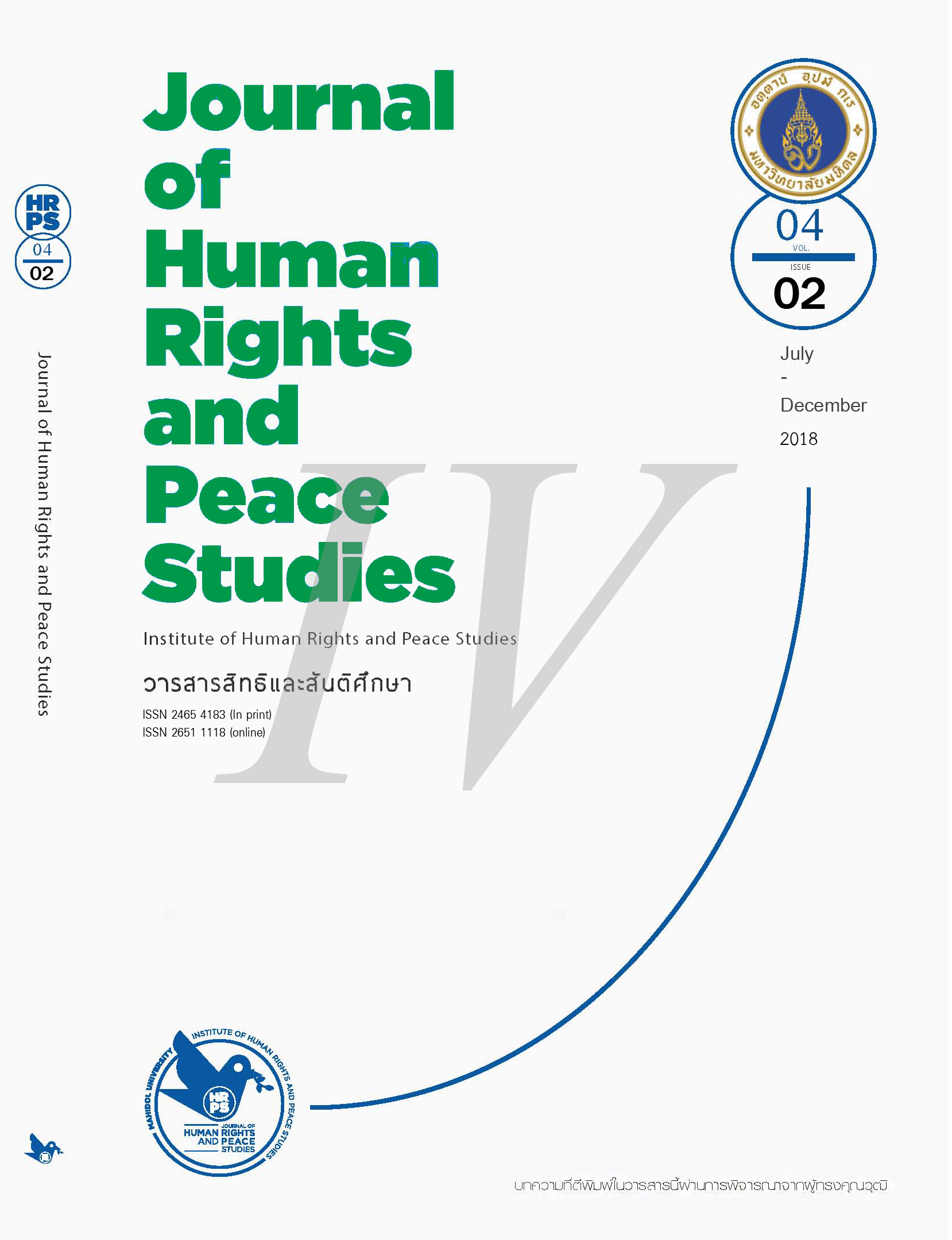Human Rights Education & Policing in Indonedia: A Case Study of the Regional Police of North Sumatra
Main Article Content
Abstract
The Indonesian National Police (Polri) has faced a series of fundamental changes since 1998. Beside, the Police was separated from the Indonesian Army (TNI) based on the People’s Consultative Assembly Decree No. VI Year 2000 on the Separation of TNI and Polri and Decree No. VII Year 2000 on the Role of the TNI and Polri, and the trajectory of the national reform produced stronger and more reliable institutional adaptation and professionalism from Polri. This paper borrows David H. Bayley’s revelation of the future police by first removing the myths of the police forces. Police forces as one of the security actors in Indonesia demands continuous changes, evaluations, and improvements. One significant signs of progress is the recognition and maximum effort to internalize human rights principles and standards in Polri’s performance. The efforts to internalize human rights education and the implementation of the human rights policing model serve as a new challenge for Polri in the era of Indonesian democratization. This paper finds that human rights education for policing in Indonesia has been relatively well run. The scope and achievement of human rights has been inculcated through various policies, among which the most important is the commitment to implement human rights through the Directive of Head of Police (Perkapolri) No. 8 Year 2009 and commitment to implement the process and recruitment of Polri members with clean, transparent, accountable and humane principles (Perkapolri No. 13 Year 2010).
Article Details
The views, opinions, and pictures expressed in this journal are those of the authors and do not necessarily reflect the opinions and viewpoints of the editor and the editorial board. All rights are reserved by the authors and the Institute of Human Rights and Peace Studies of Mahidol University. No part of this journal may be reproduced, stored in a retrieval system, or transmitted in any form or by any means without the prior permission in writing from the journal’s editor, or as expressly permitted by law, or under terms agreed with the appropriate reprographics rights organization. Non-commercial use of information in this journal must be properly referenced.

